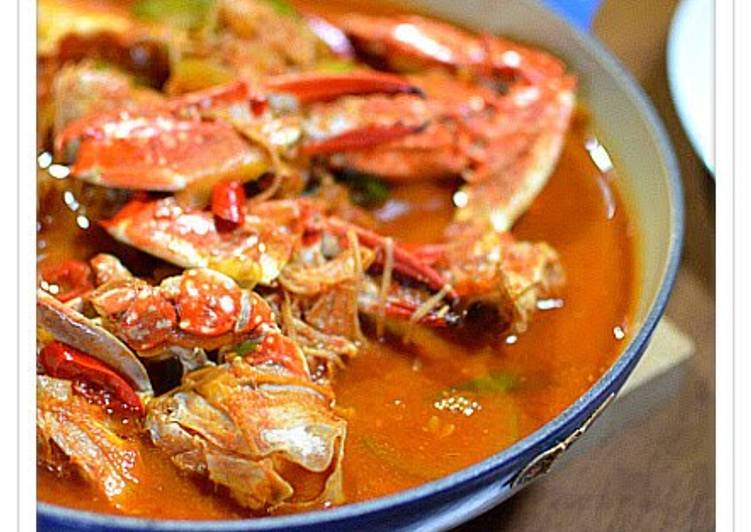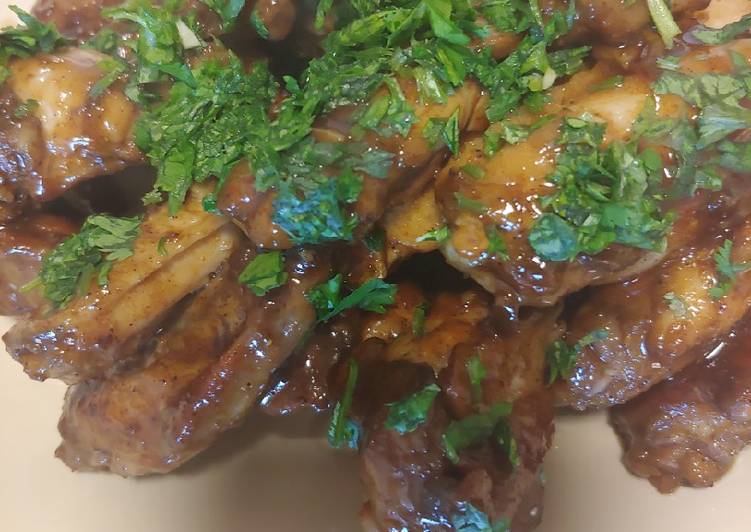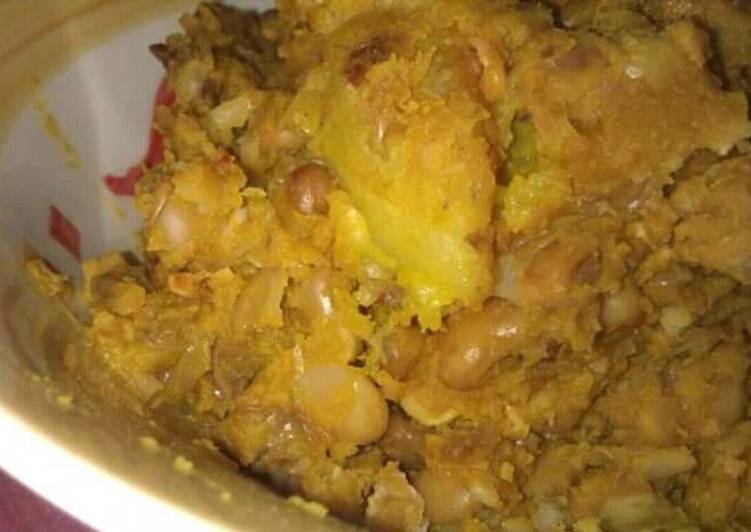
Hello everybody, it is Brad, welcome to our recipe page. Today, we’re going to make a special dish, crab jjigae. It is one of my favorites food recipes. This time, I’m gonna make it a little bit tasty. This will be really delicious.
Crab Jjigae is one of the most well liked of recent trending foods in the world. It’s appreciated by millions daily. It is simple, it’s fast, it tastes delicious. They’re nice and they look fantastic. Crab Jjigae is something that I have loved my entire life.
Flower crabs are the most common crab used in Korean cuisine. They are low in fat and calories, but high in protien and nutrients. This sauce—what my family simply calls "geh sauce," or "crab sauce" in Korean—is inspired by doenjang-jjigae, a seafood-and-beef stew built on fermented.
To get started with this recipe, we must first prepare a few ingredients. You can have crab jjigae using 16 ingredients and 13 steps. Here is how you cook it.
The ingredients needed to make Crab Jjigae:
- Get 5 crabs' worth Crab meat
- Make ready 1 Korean zucchini
- Make ready 1/3 Daikon radish
- Make ready 1 large Onion
- Take 1 ◆Japanese leek
- Get 3 each ◆Korean fresh red chili pepper (red and green)
- Get 1 packet ◎ Enoki mushrooms
- Get 1/2 bag ◎ Chrysanthemum greens
- Make ready 1600 ml Water
- Get 33 grams ★ Korean powdered chili pepper
- Take 86 grams ★ Korean miso
- Get 36 grams ★ Gochujang
- Take 10 grams ★ Soy sauce
- Make ready 20 grams ★ Mirin
- Prepare 20 grams ★ Garlic, grated
- Get 1 ★ Salt
Kimchi Jjigae - Easy Kimchi Stew. Michelin-Starred Singaporean Chili Crab - How To. A thick stew, or jjigae, served communally, piping hot, and in an earthenware bowl, is for many the epitome Kimchi stew with tuna. Kimchi jjigae at Holmes Korea in Chadstone, Australia. (Alpha/Flickr Creative Commons).
Instructions to make Crab Jjigae:
- If the crabs are frozen, take them out of the freezer and thaw them for 30 minutes at room temperature to make them easier to handle.
- Clean the crabs thoroughly using a brush of some sort, and gently remove the excess moisture.
- Remove the back shell. Cut off the unnecessary parts such as the tip of the legs and gills with a knife or a pair of scissors and divide into 4 pieces.
- Drain in a colander.
- Cut the onion, daikon radish, and zucchini into bite-sized pieces.
- This is Korean zucchini. You may use a regular variety, but the taste is quite different. I recommend using a Korean zucchini if available.
- Thinly slice the ◆ vegetables.
- In a bowl, combine all of the ★ ingredients and knead evenly.
- Fill a pot with the water, then add the daikon radish and the seasoning mixture from Step 8 and turn on the heat. Once it comes to a boil, reduce heat to medium and cook until the daikon radish is tender.
- Add the onion and zucchini to the pot and simmer over medium heat for about 10 minutes. Bring to a boil over high heat, and add the crabs into it one by one.
- Simmer for about 10 minutes while removing the fat and scum.
- Add the sliced vegetables and the ◎ ingredients and bring to a boil. Season with salt to taste and turn off the heat.
- It's done.
Sure, the best jjigae is made at home but we don't all have a Korean mom willing to do that at the drop of a hat. Vietnamese crab and tomato noodle soup Bun Rieu Cua. Homemade popular Chinese food hot freshness delicious Fish maw s. Female crabs with roe are preferred by Koreans for making gejang because seasoned crab roe is delicious! In Korea, gejang quality is partially determined by the amount of roe and tomalley in the.
So that’s going to wrap it up for this special food crab jjigae recipe. Thank you very much for your time. I’m sure you can make this at home. There is gonna be interesting food in home recipes coming up. Remember to bookmark this page in your browser, and share it to your loved ones, colleague and friends. Thanks again for reading. Go on get cooking!


